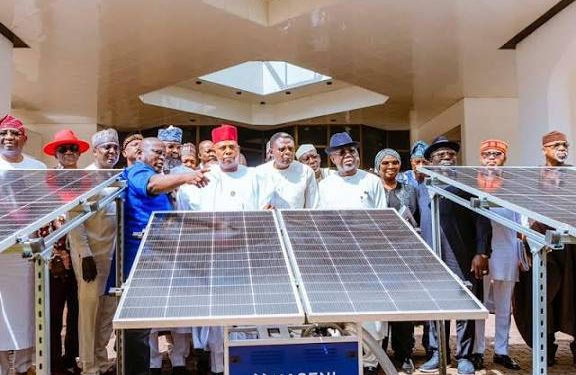The National Economic Council (NEC) has approved the deployment of solar-powered irrigation pumps developed by the National Agency for Science and Engineering Infrastructure (NASENI), a move aimed at transforming Nigeria’s agricultural sector and strengthening rural small businesses.
For years, smallholder farmers and agricultural SMEs have struggled with high fuel prices and limited access to electricity, challenges that have slowed productivity and restricted expansion. The new solar-powered irrigation pumps are designed to address those barriers, providing a cost-effective and sustainable alternative to petrol-powered systems.
By replacing expensive fuel with renewable energy, farmers can reduce operational costs, expand irrigation coverage, and improve crop yields. The pumps also offer an added layer of resilience by serving as backup power sources for homes and small businesses in underserved areas.
NASENI’s solar irrigation pumps are equipped with advanced features, including GPS tracking, mobile dashboards, usage monitoring, and pay-as-you-go options. These capabilities allow farmers to manage water usage more efficiently and adopt flexible payment models that make the technology more accessible.
Beyond farming, experts say the innovation could unlock new opportunities for small and medium-sized enterprises involved in installation, servicing, distribution, and maintenance, creating jobs and stimulating economic activity across the value chain.
NASENI’s Executive Vice Chairman and CEO, Khalil Suleiman Halilu, described the NEC approval as a milestone for Nigeria’s homegrown technology ecosystem. He said the initiative would help lower costs for farmers, strengthen rural livelihoods, and contribute to national food security.
The nationwide rollout is expected to accelerate the adoption of renewable energy solutions in agriculture and demonstrate how locally developed technologies can solve pressing challenges in food production and rural development.










